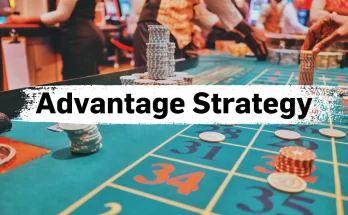Gambling harm minimisation strategies are currently promoted to consumers, yet many lack empirical proof for their efficacy. To examine this phenomenon more comprehensively, this study employed elastic net regression to identify practices which predicted lower gambling harm among gamblers at high risk for harm.
Gamblers and affected others overwhelmingly supported responsible gambling frames that promote individual accountability; they also suggested altering them to focus more on systemic causes of harm.
Responsible Gambling Practices
Gambling responsibly refers to following a set of guidelines designed to promote enjoyment while limiting potential danger. This involves setting limits on how much money a person is willing to spend and time they devote to gambling activities, thus helping prevent addictive behavior or financial issues from developing.
This study recruited 107 gambling research, treatment, training, and policy professionals from Gambling Issues International’s mailing list forum dedicated to gambling issues. Each professional was asked to rate the helpfulness of 61 responsible gambling practices on a 5-point scale while participants identified any additional responsible gambling practices they considered significant and why. It should be noted that due to such limited inclusion of affected others within this study, its findings may unintentionally reinforce gendered stereotypes which must be taken into consideration when interpreting its results.
Self-Control
Gambling can have detrimental consequences, including financial strain and stress-induced health conditions such as anxiety or depression. For these people, self-control is crucial to keep their gambling under control and avoid harm from occurring.
Participants used several strategies to limit their gambling spending, such as not chasing losses, setting timer cues to keep track of time and only using money they brought into the venue. This practice aligns with previous research that indicates low risk/nonproblem gamblers use more self-regulatory strategies than those who may develop gambling-related issues.
Participants also discussed how substance use could impede their efforts to implement and adhere to self-control strategies, though due to the sensitive nature of this topic they did not provide further details. They did state, however, that discussing their own experiences of addiction in public forums such as interviews or focus groups made them uncomfortable.
Avoiding Thrills
Gambling stands apart from other recreational activities in that it involves risking something of value (such as money) to win something new and unknown, along with dopamine release in the brain during gambling sessions. This thrill of the unknown coupled with dopamine release creates an addictive and potentially harmful behavior in some individuals.
To stay away from these dangerous habits, it’s vital that any triggers that lead to gambling be avoided. This could involve avoiding certain situations or devising an action plan which ensures responsible gambling, like setting a budget before gambling with funds you can afford to lose and understanding the odds and house edge of different forms of gambling so as to make more informed decisions when gambling. It is also wise to be wary of chasing losses as this can lead to financial ruin – the illusion of control, irrational beliefs and the gambler’s fallacy are unhealthy thought patterns which contribute to gambling compulsion; therefore it is vital that such destructive thought patterns be challenged in order to reduce gambling compulsion.
Keeping a Budget
Assigning a budget to your gambling activities can be an effective way of avoiding financial problems caused by irresponsible gambling habits. A budget allows you to track wins and losses more accurately while making sure you don’t spend more than you can afford to lose; additionally, setting one can help ensure a healthy lifestyle balance with other leisure pursuits such as golf or tennis.
According to our knowledge, this study is the first of its kind to identify evidence-based safe gambling practices which predict an absence of harm among gamblers who would otherwise experience it. These SGPs represent an invaluable contribution to literature as they can be promoted directly to consumers or used for self-assessment tests; measured at population levels; or inform changes in policy or practice practices that support them.




